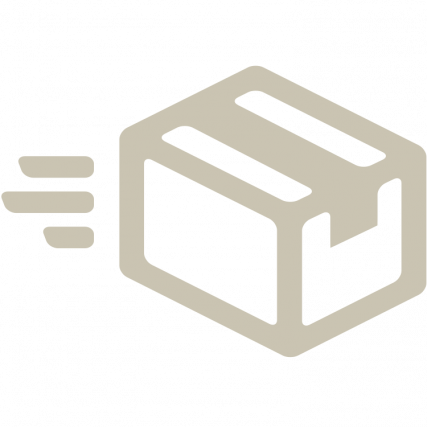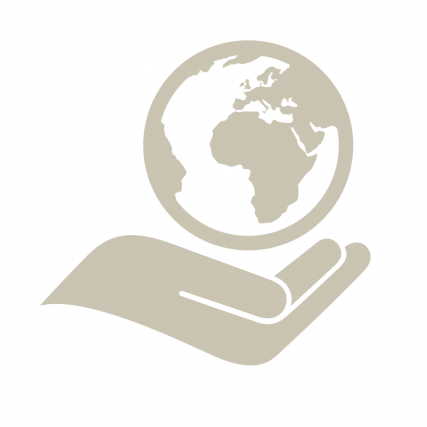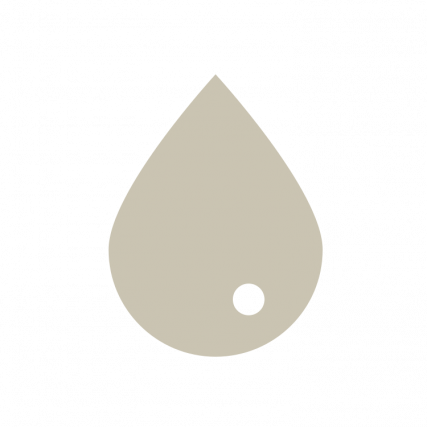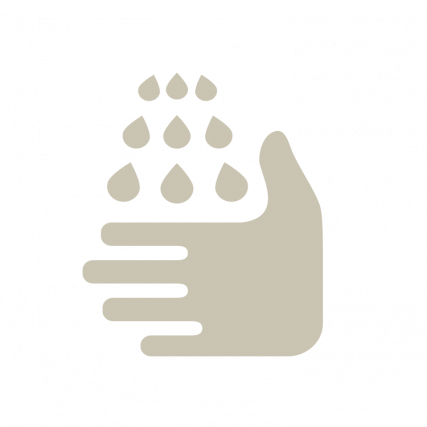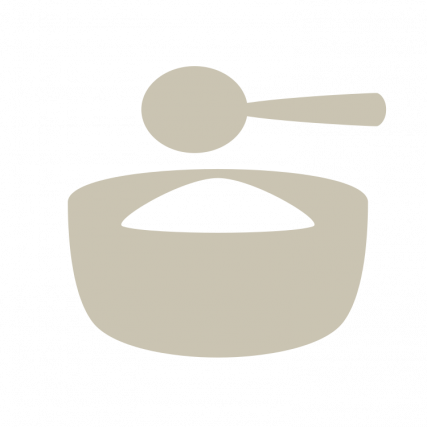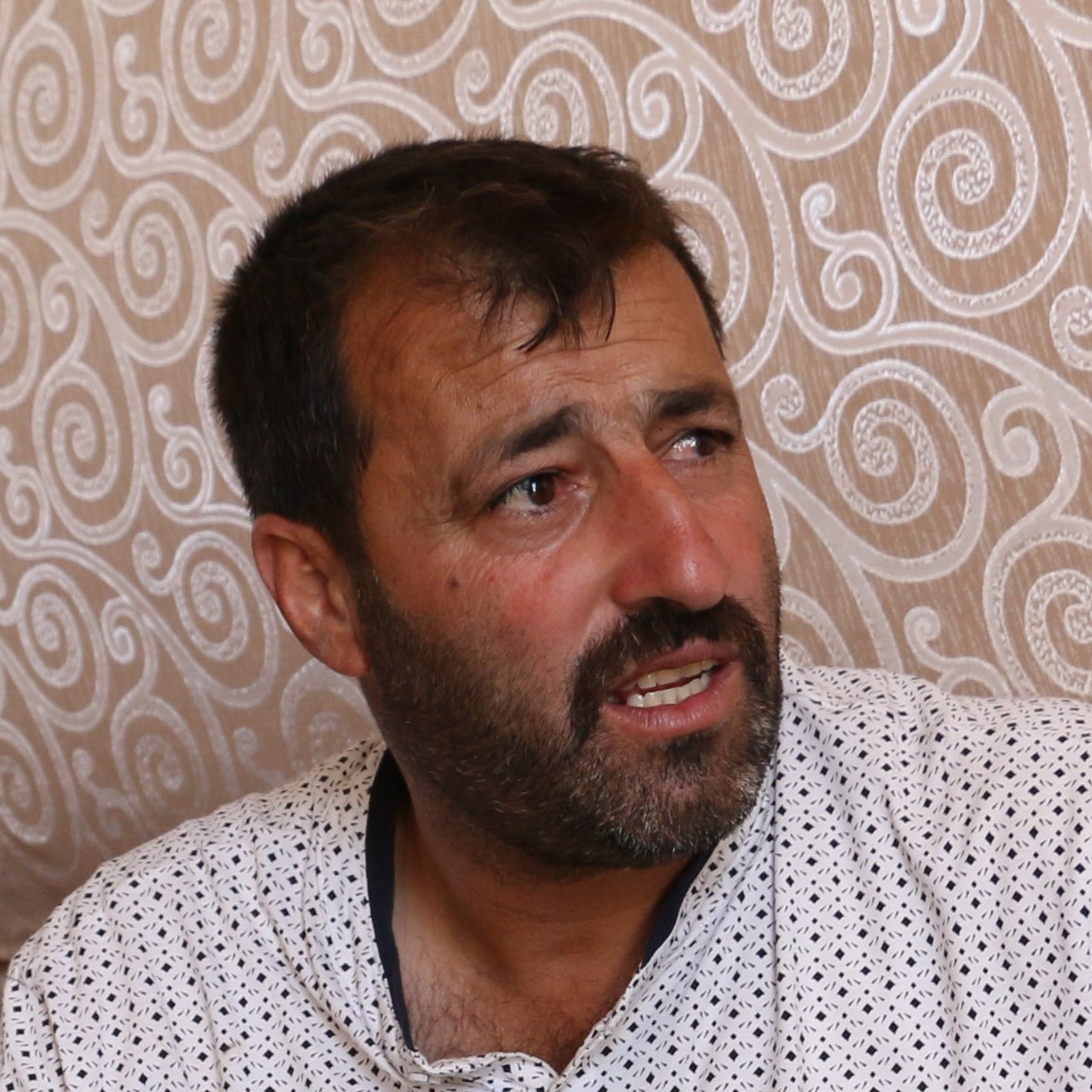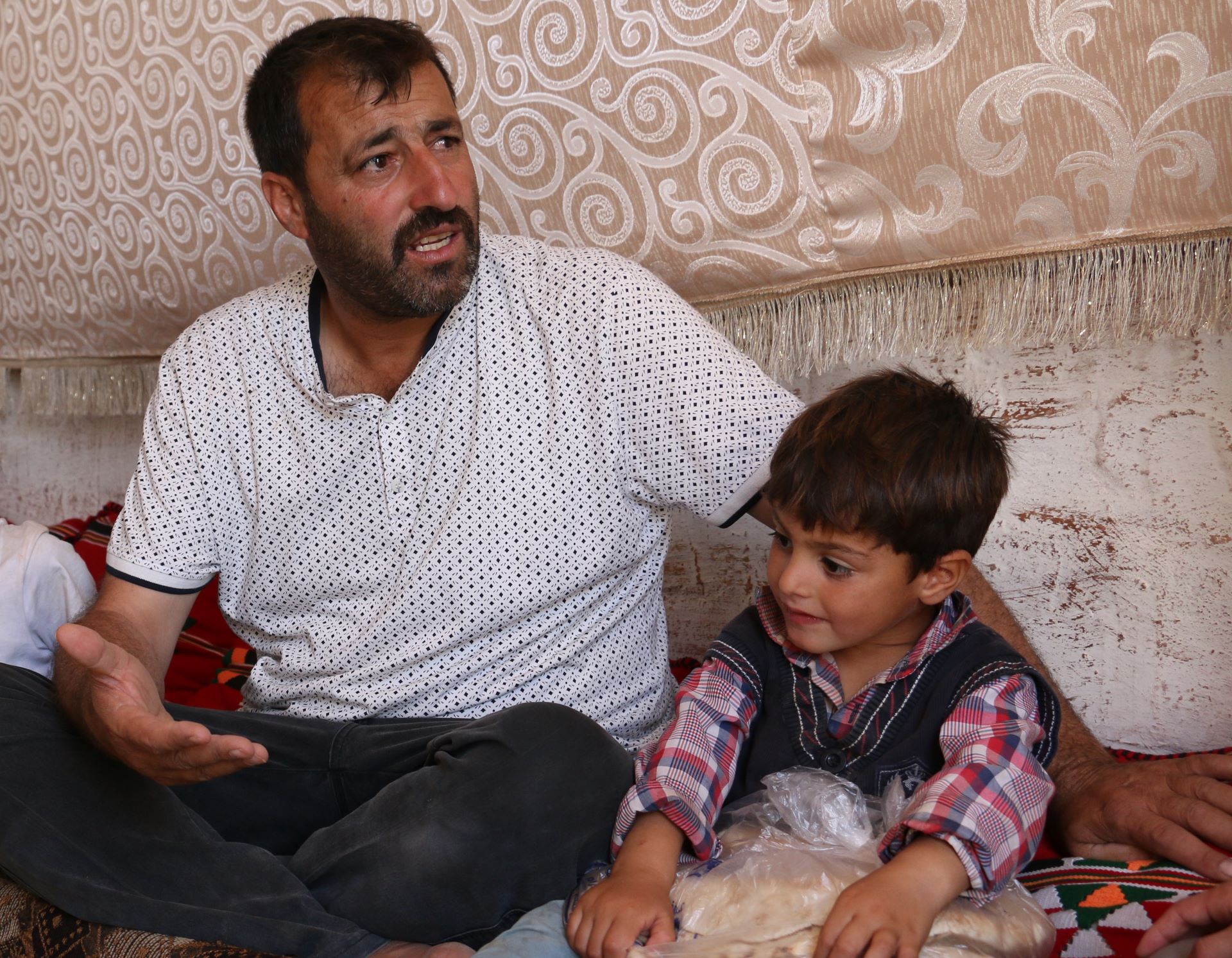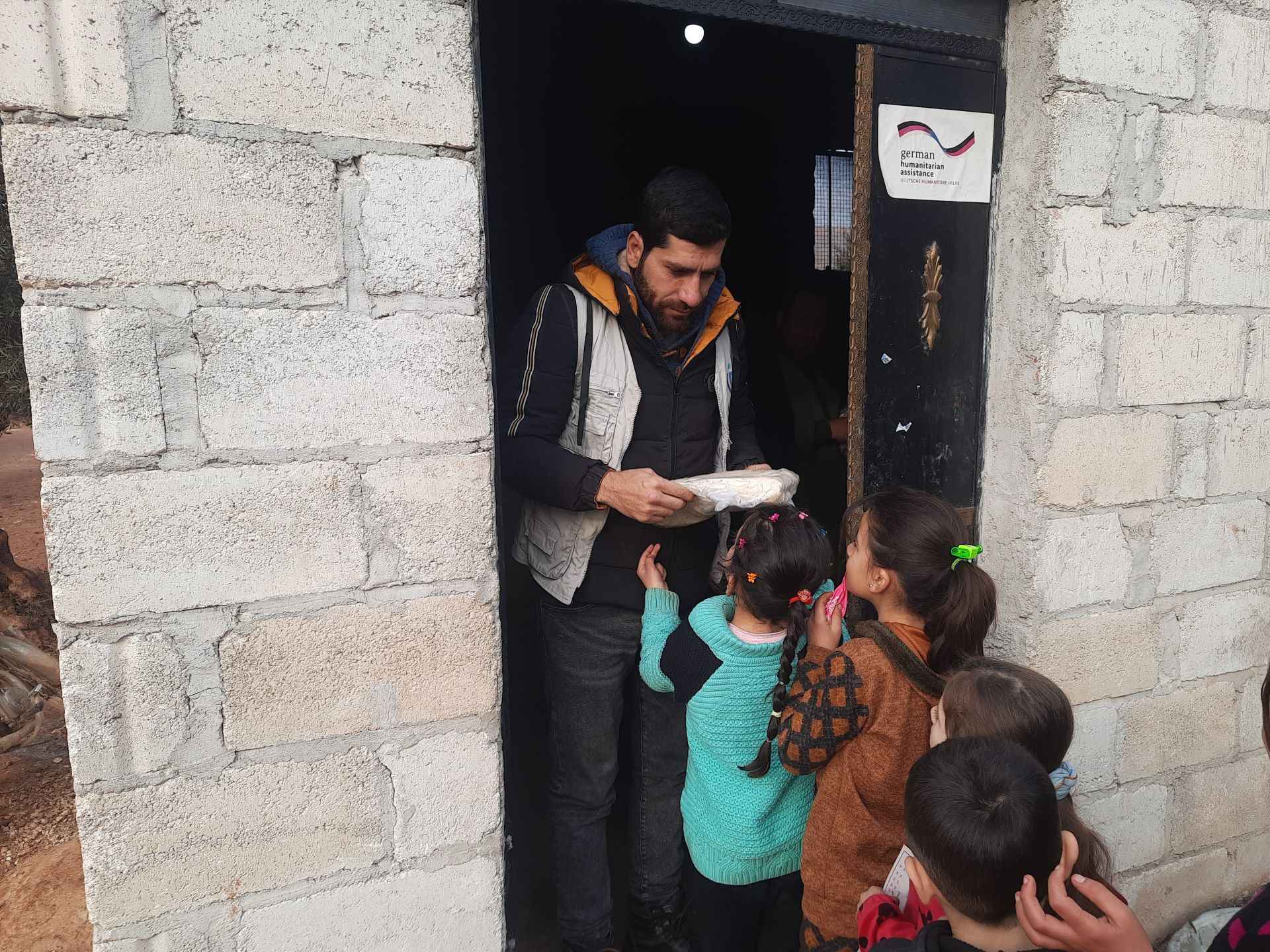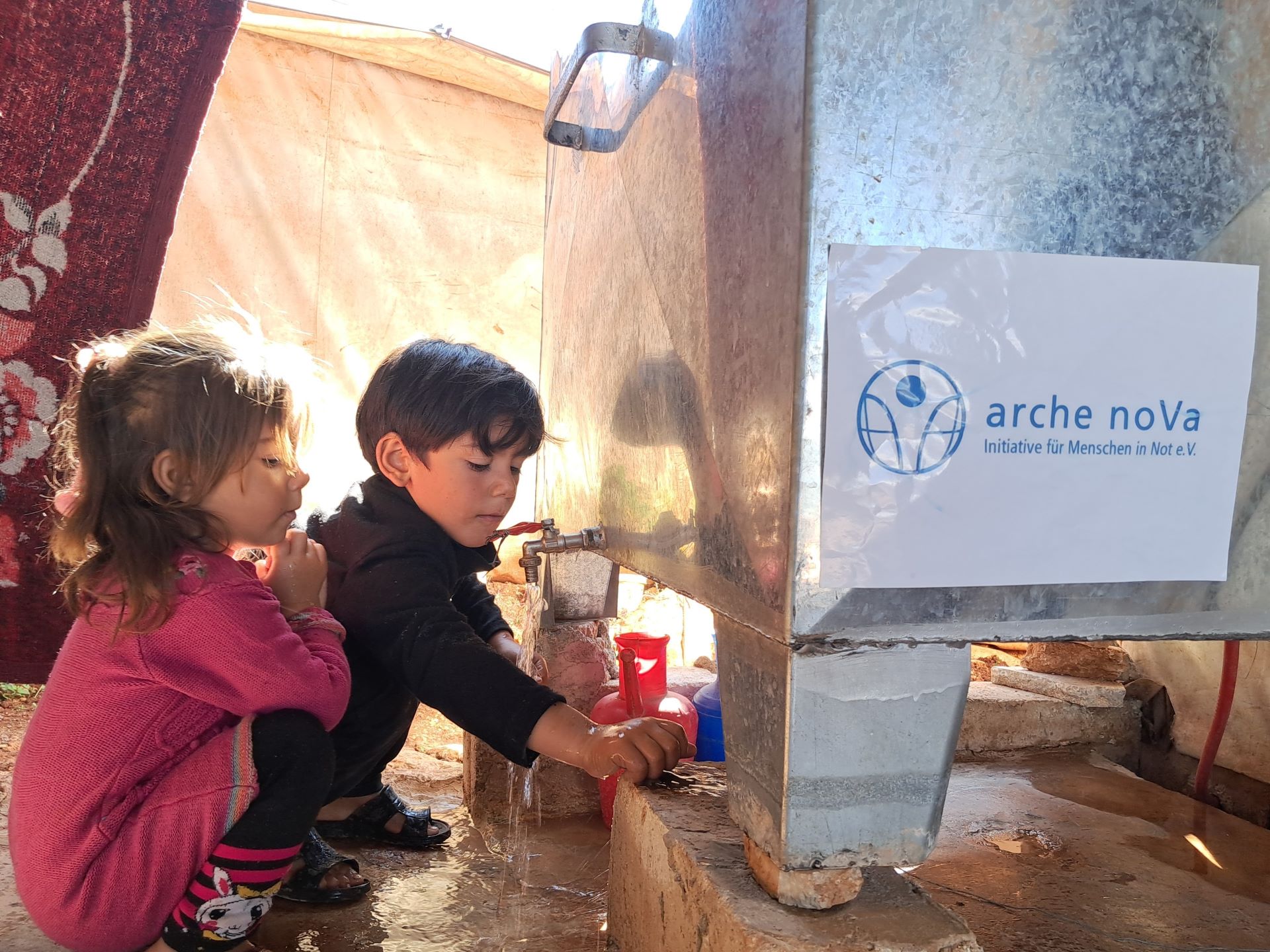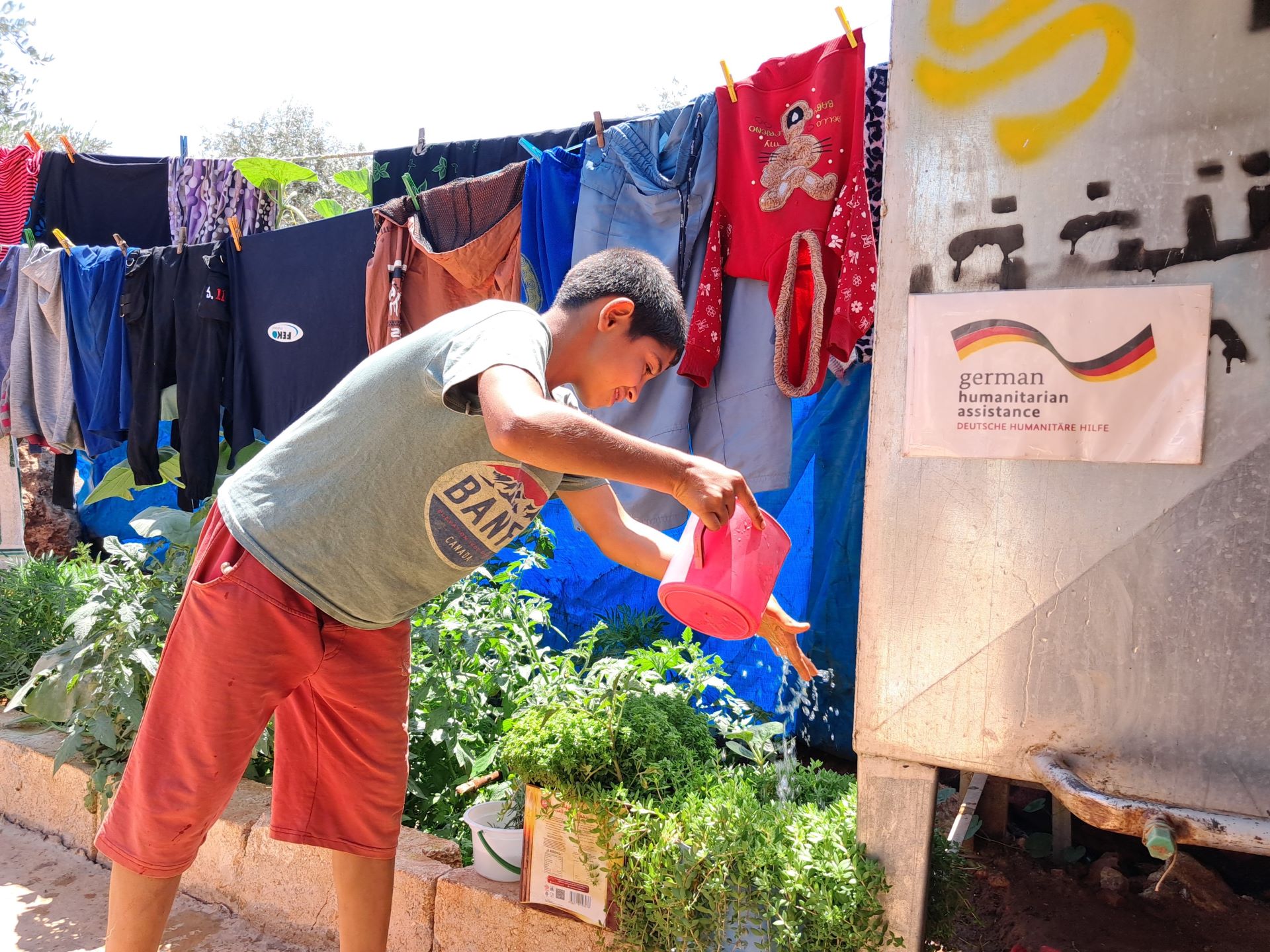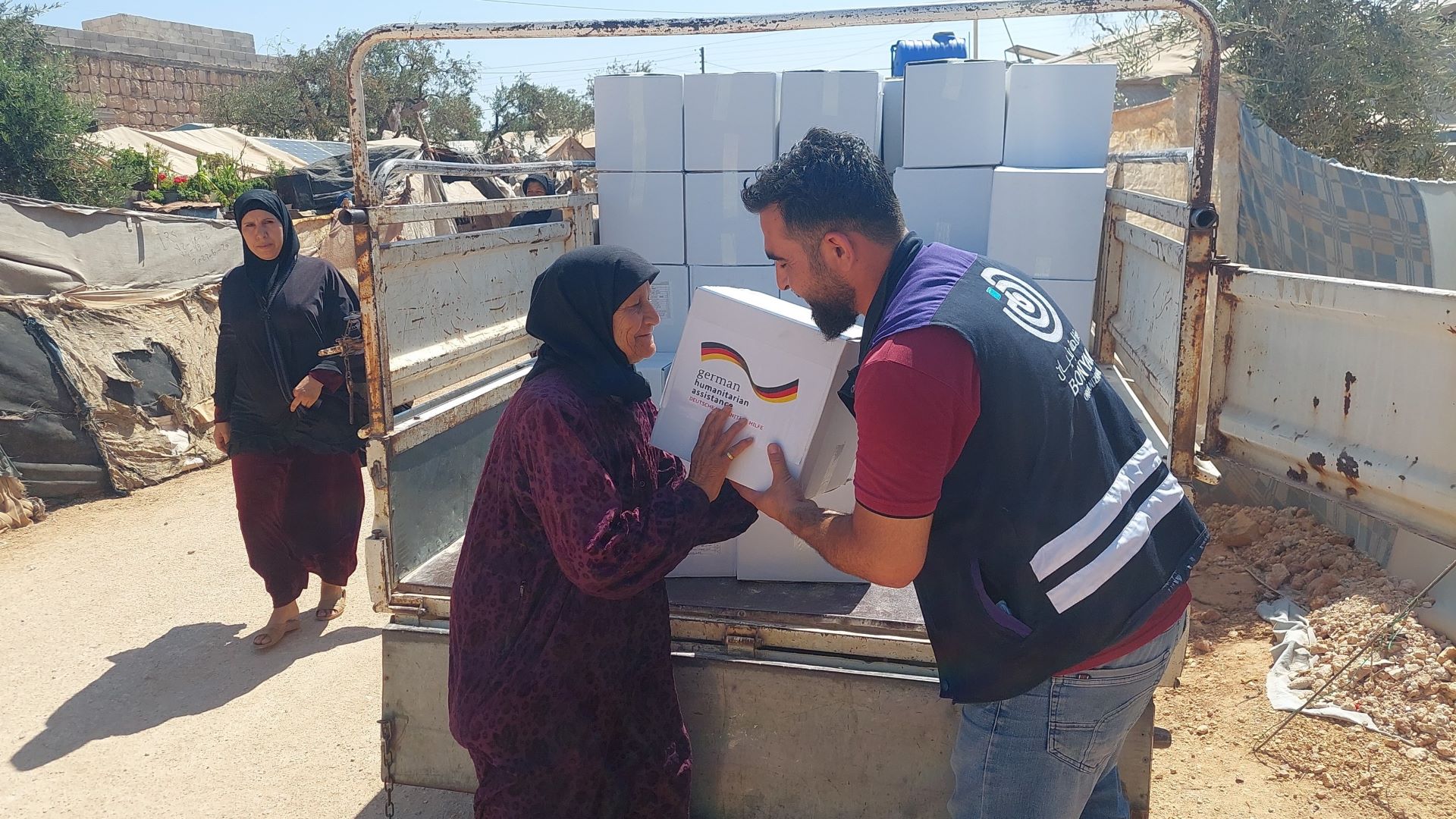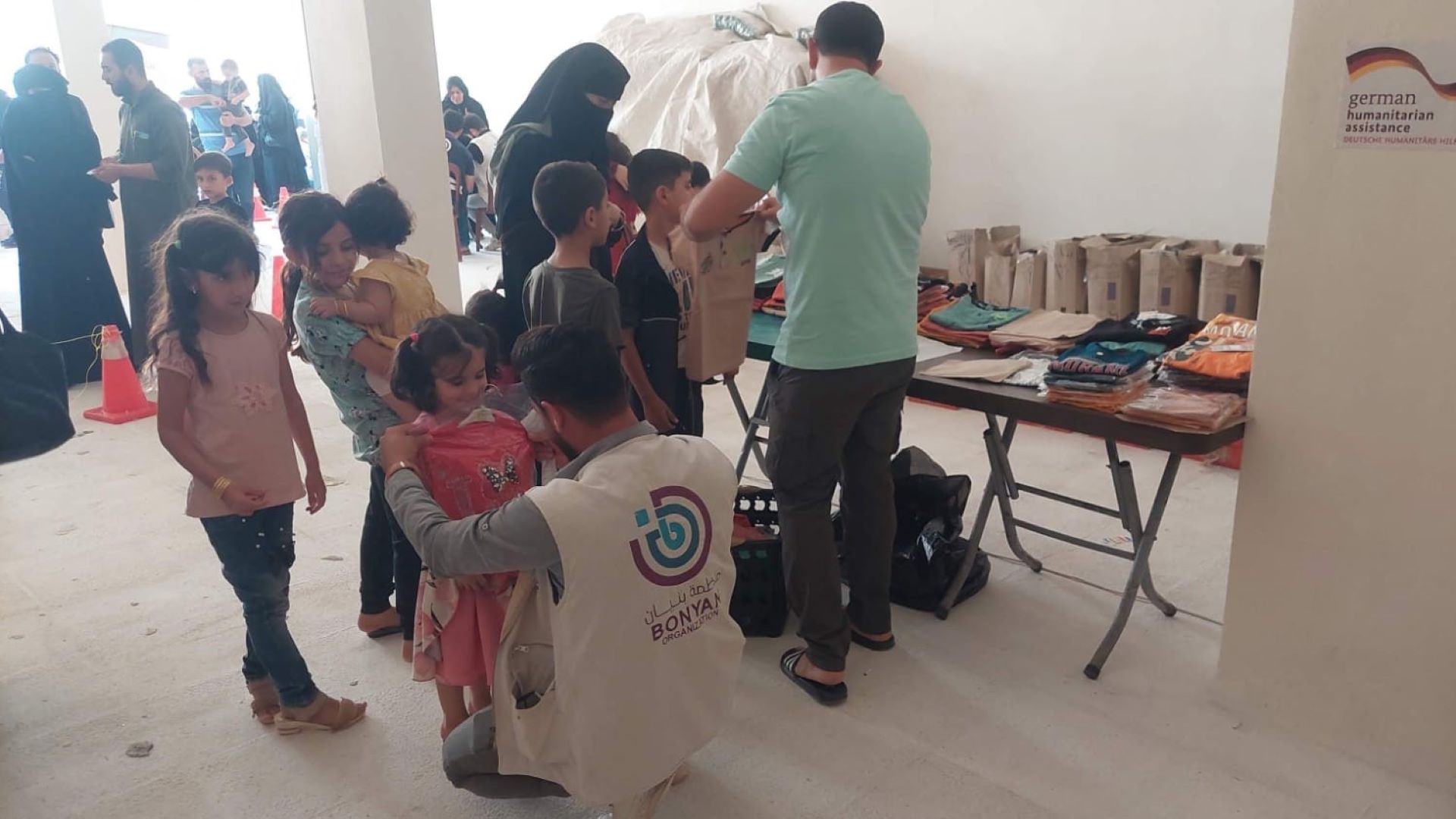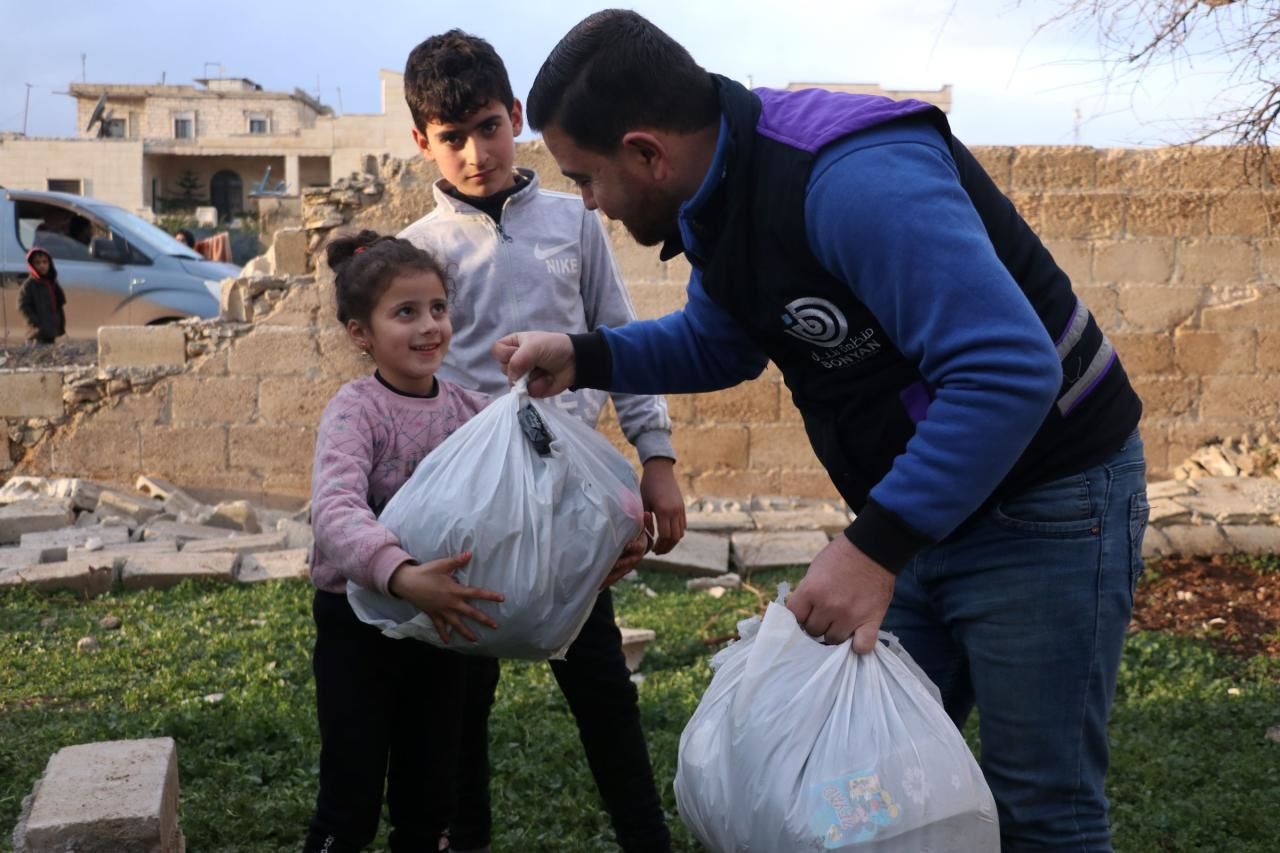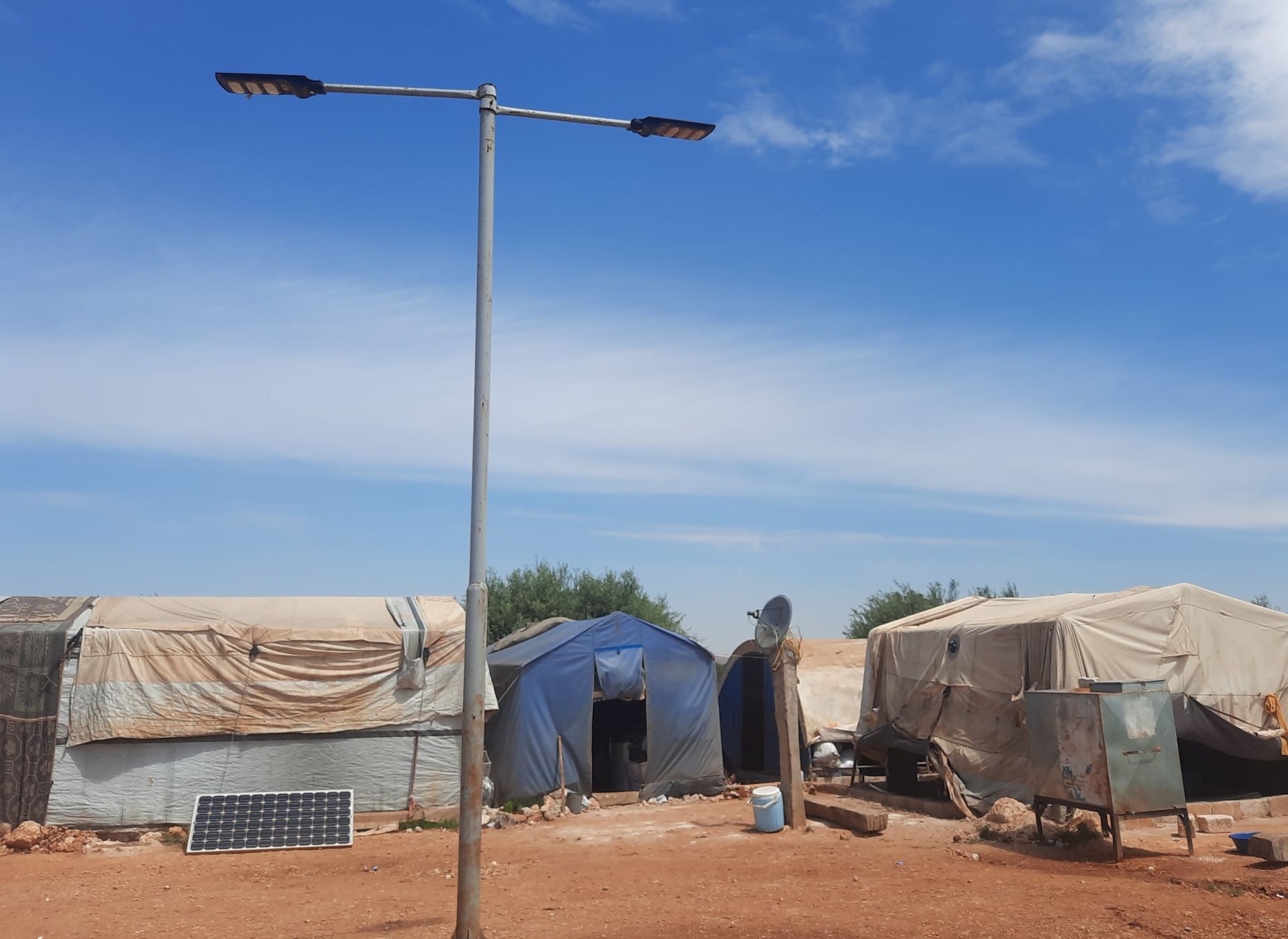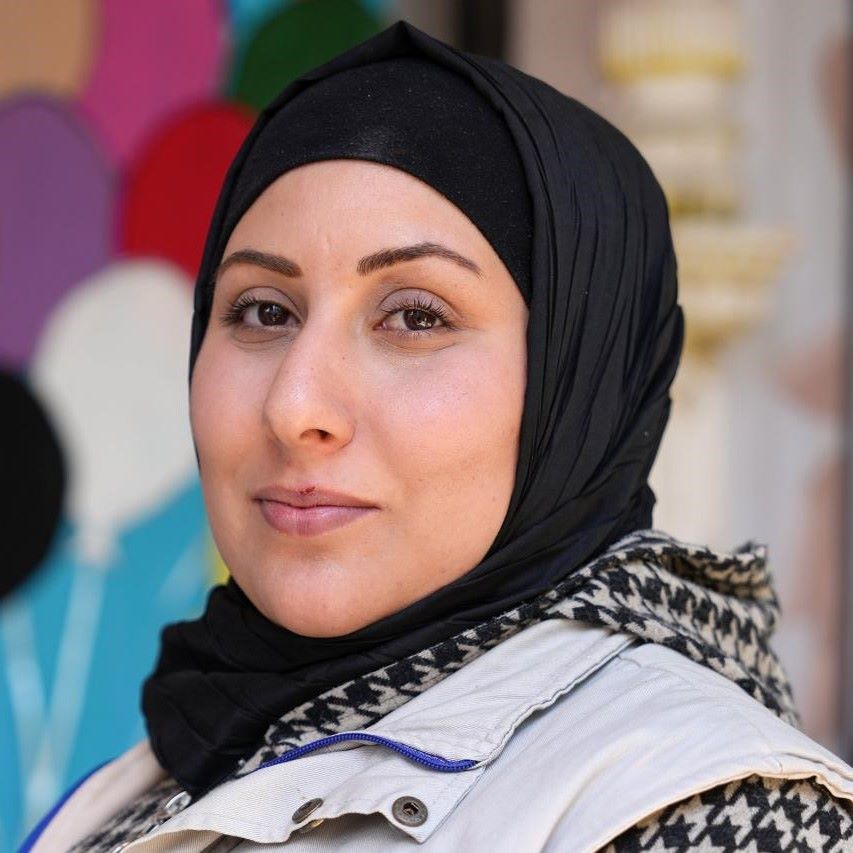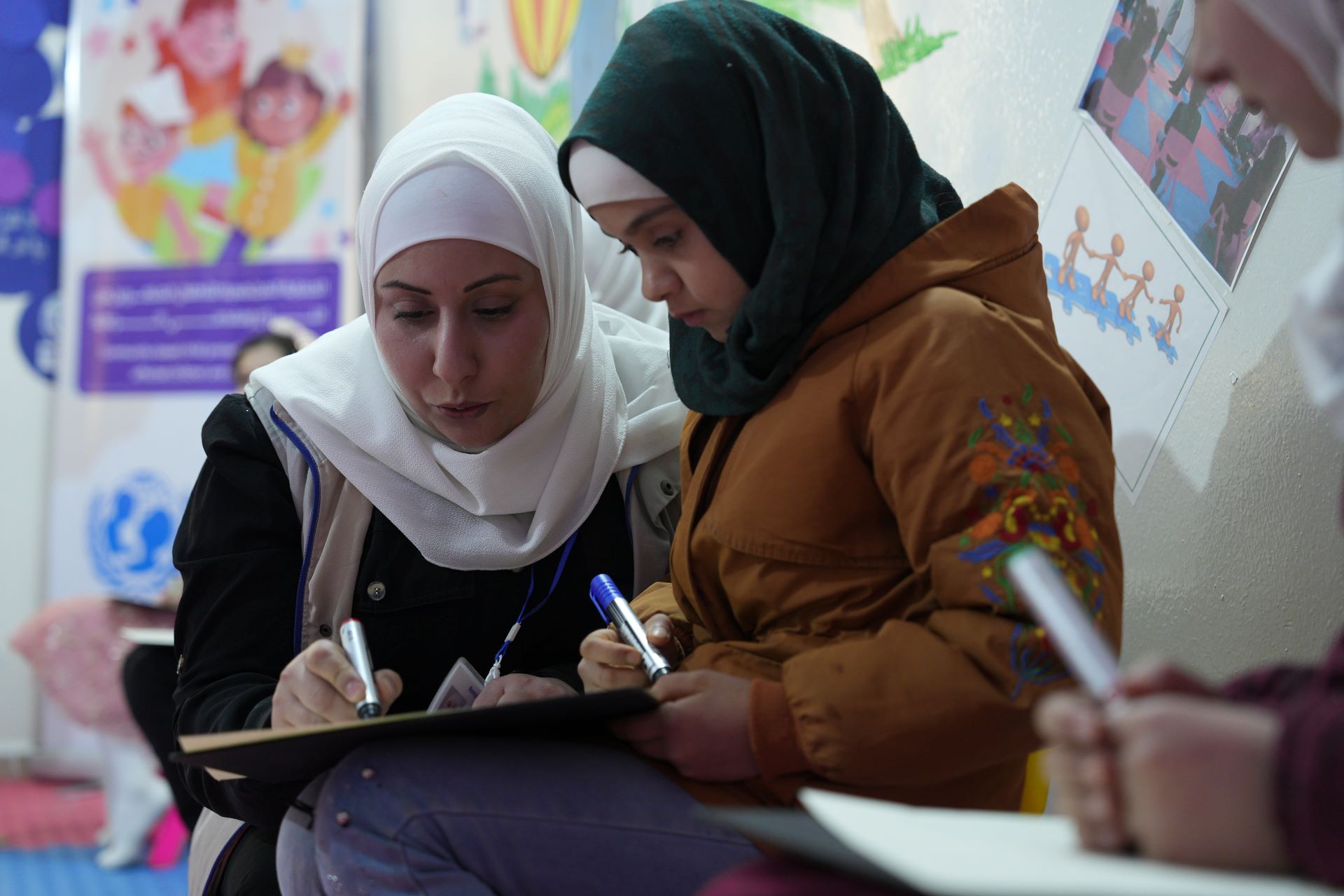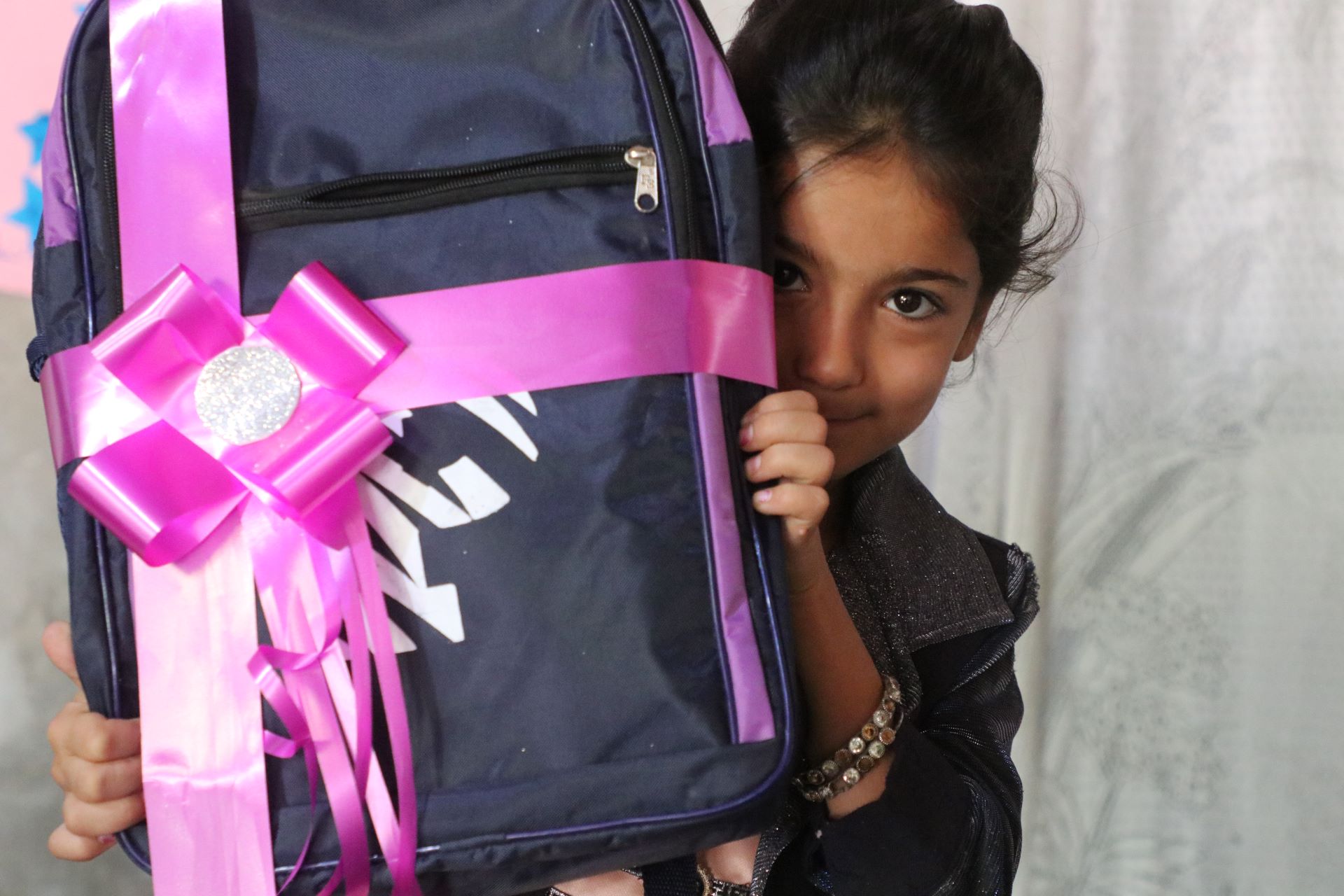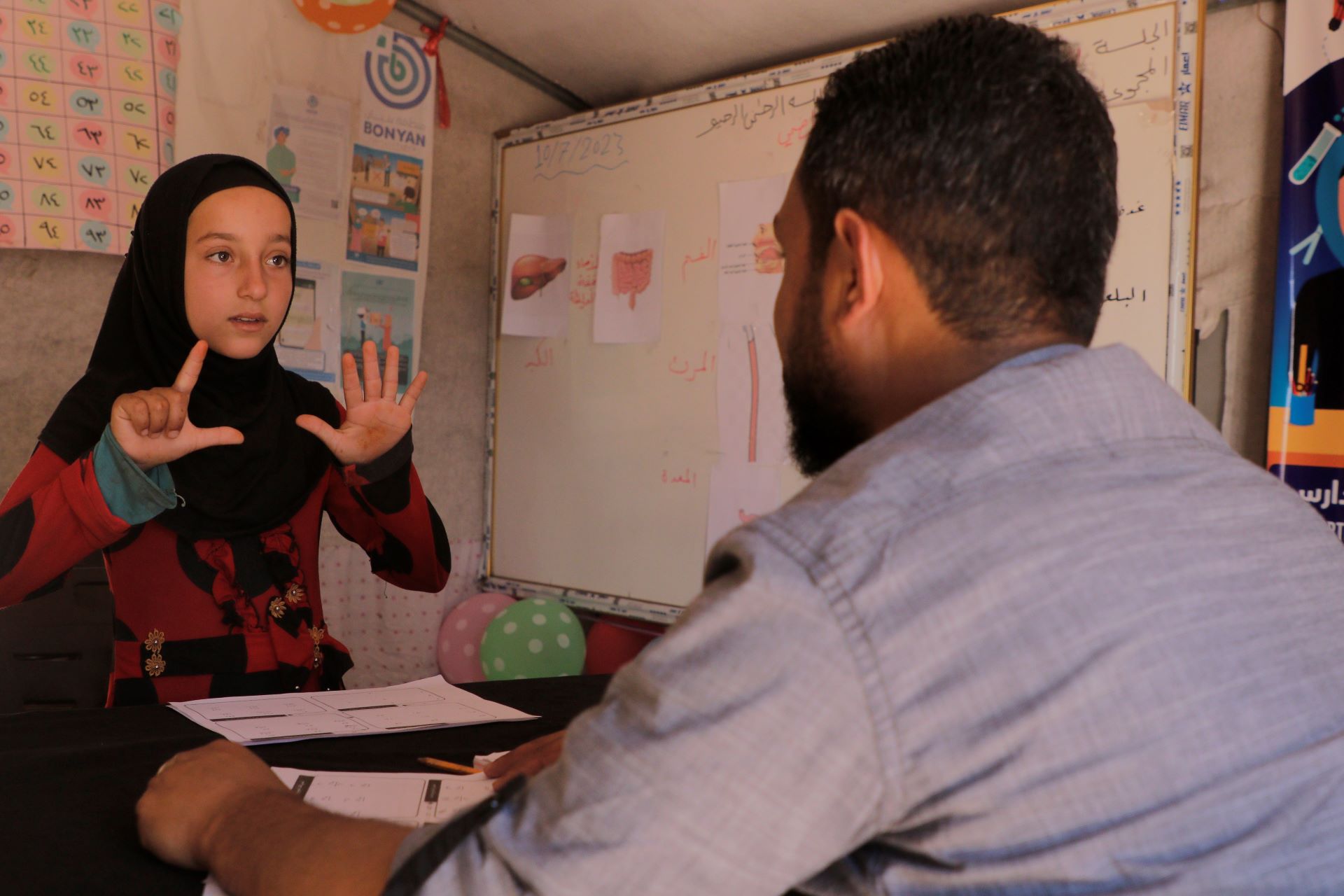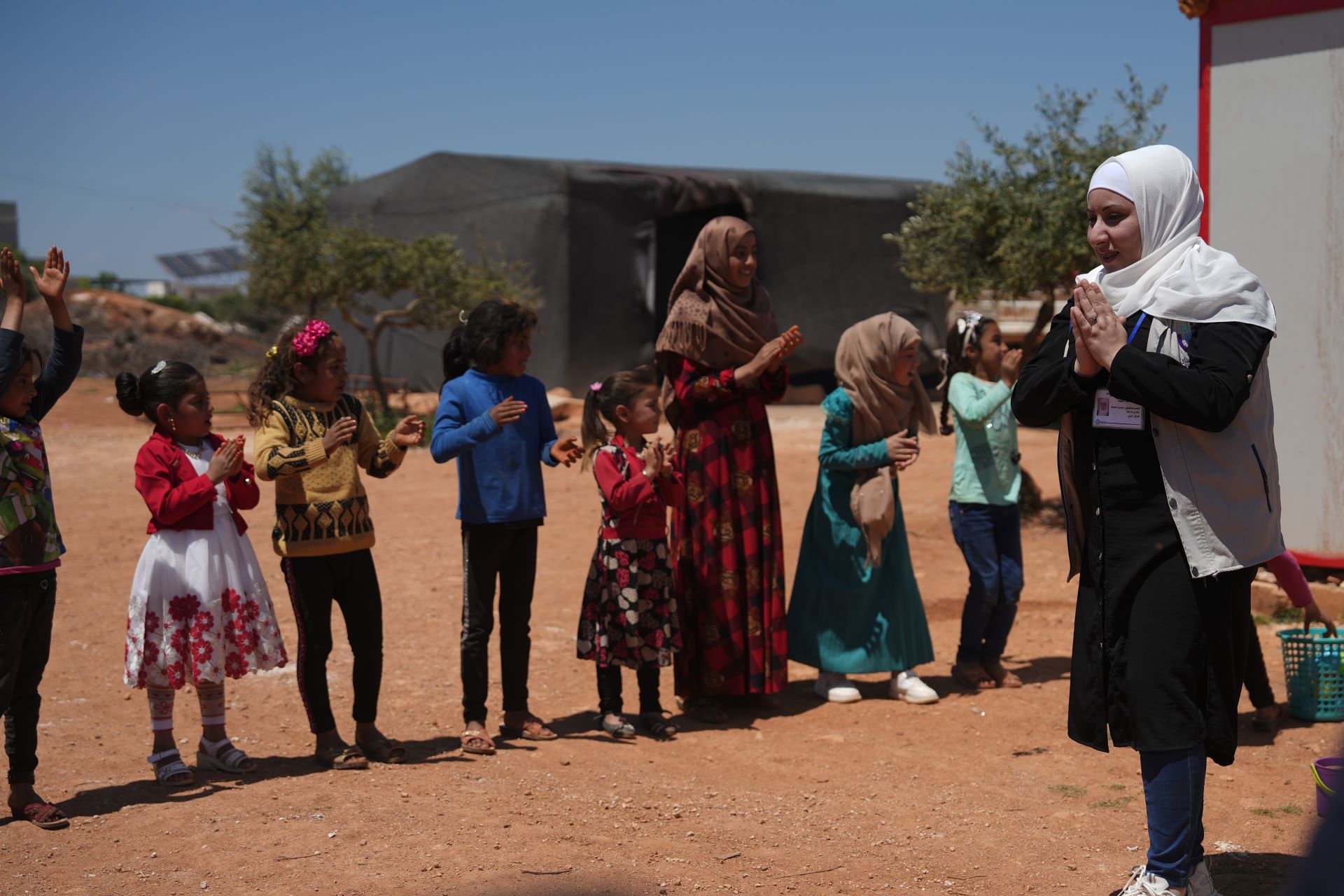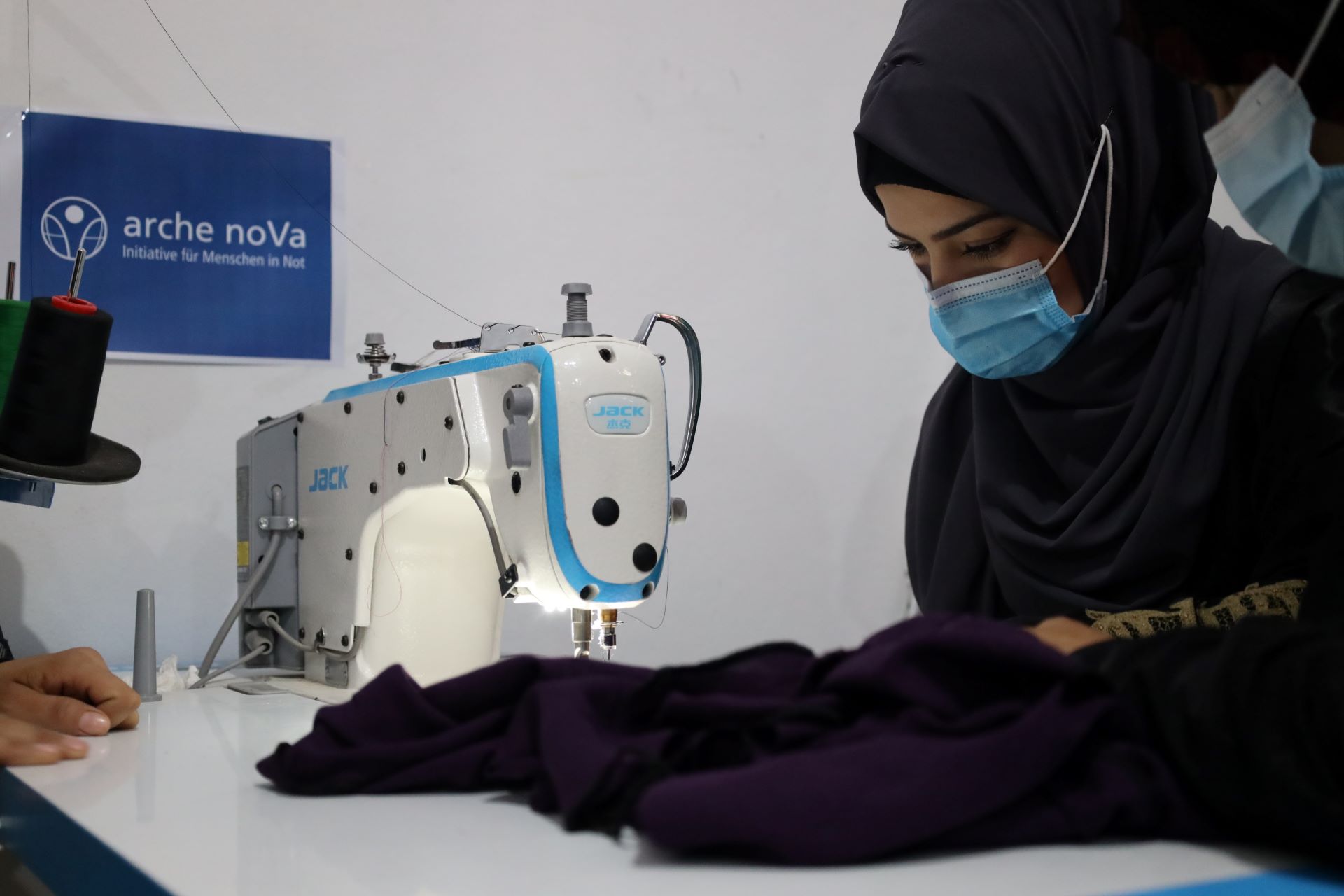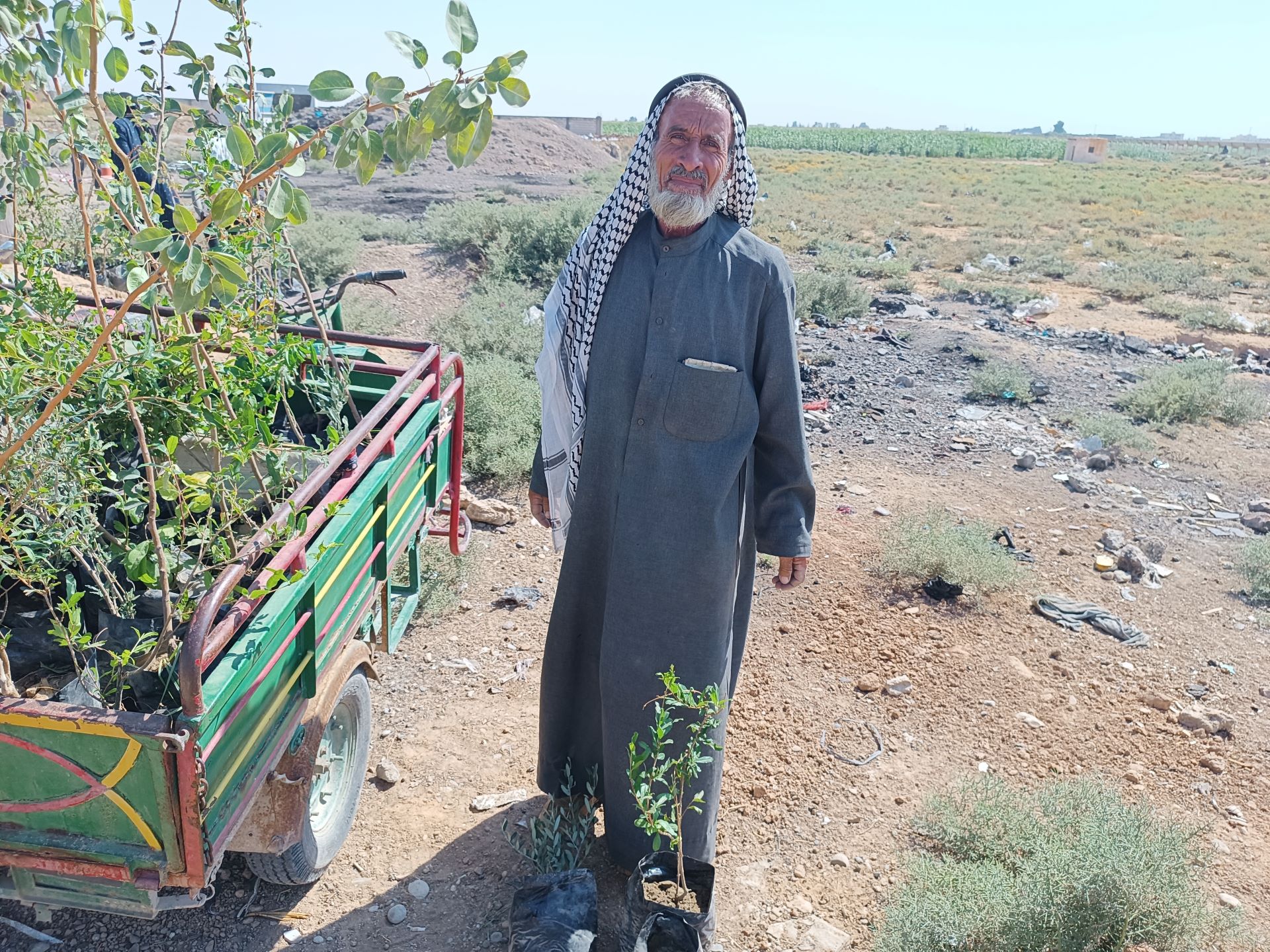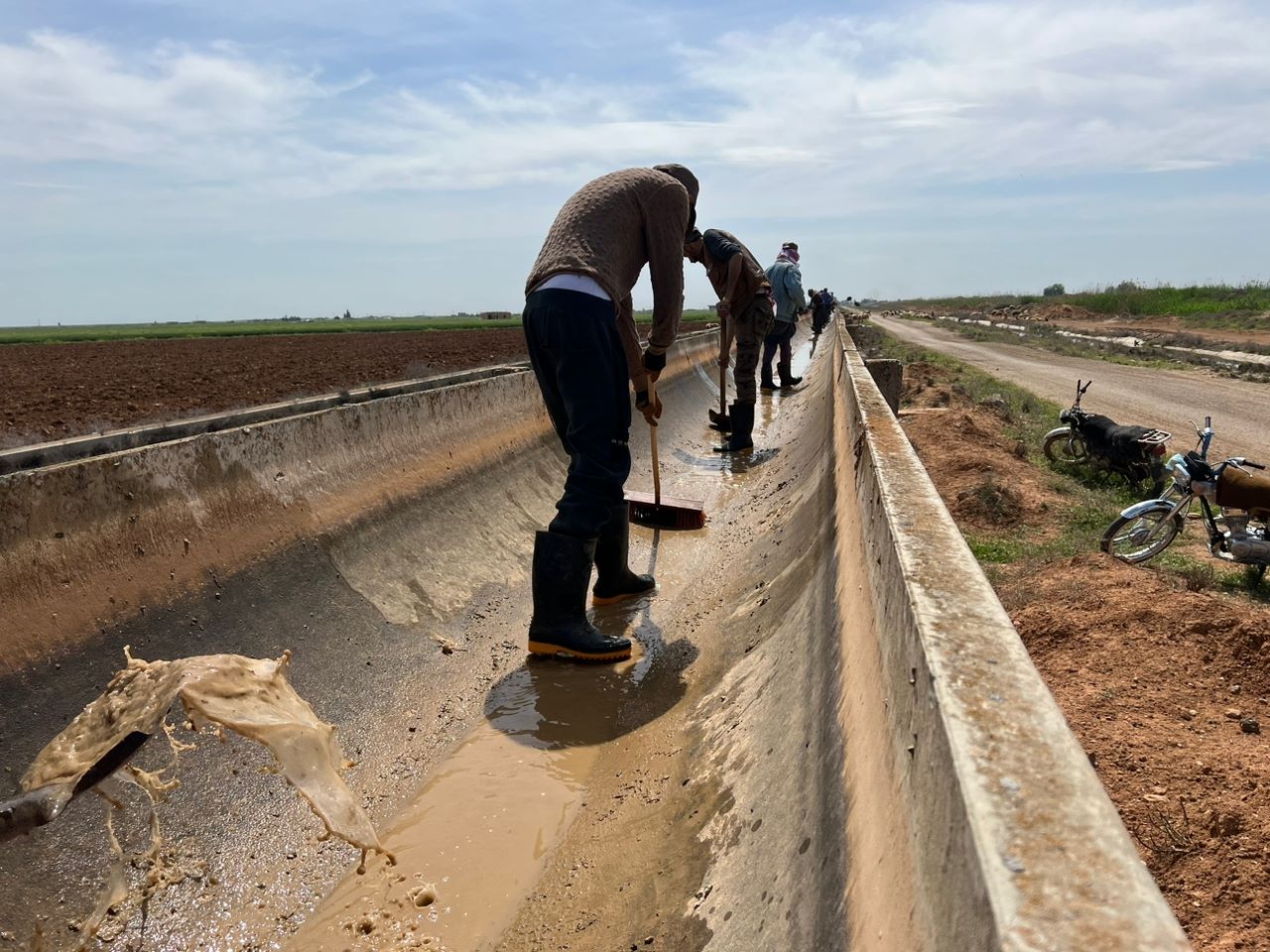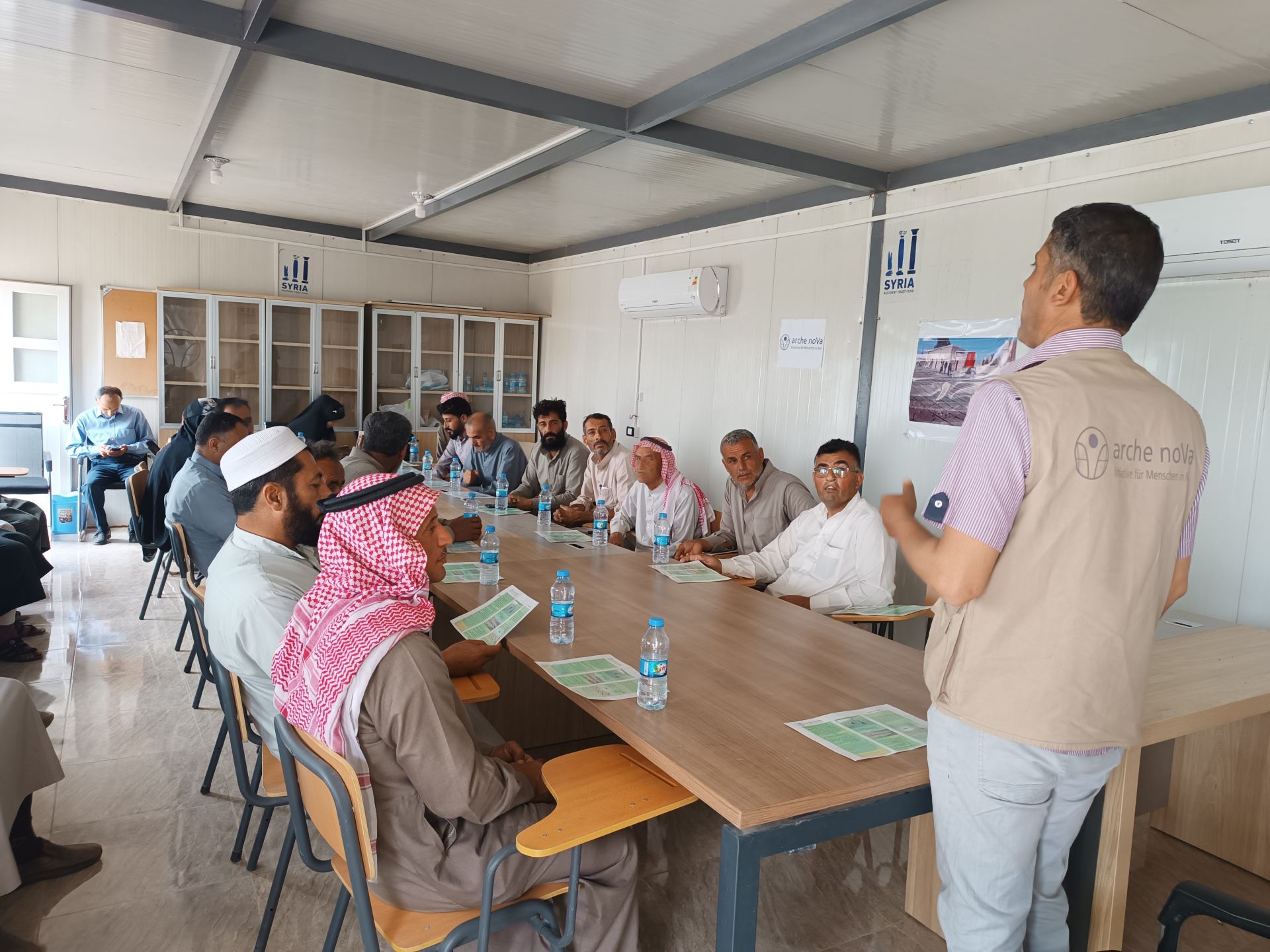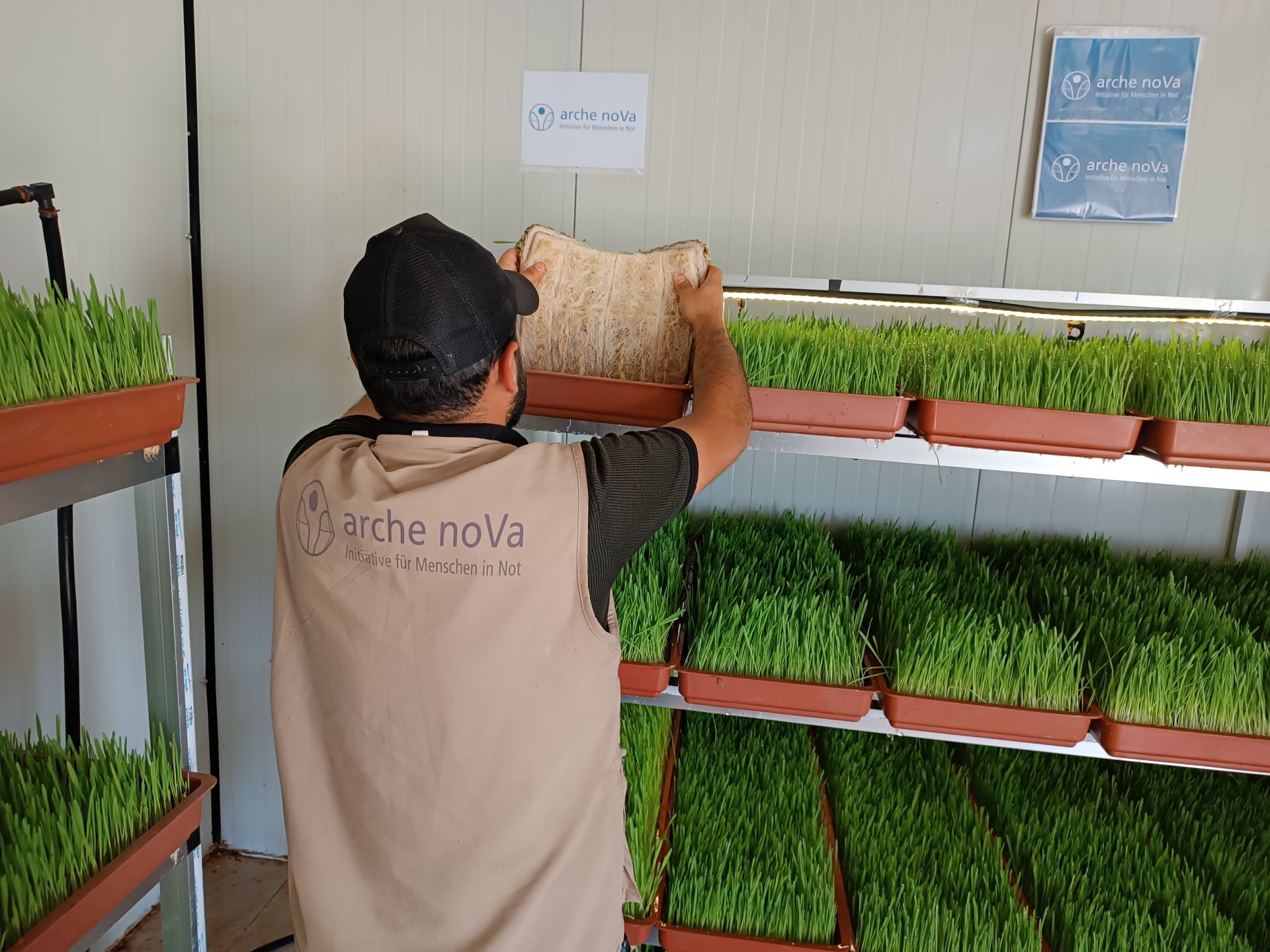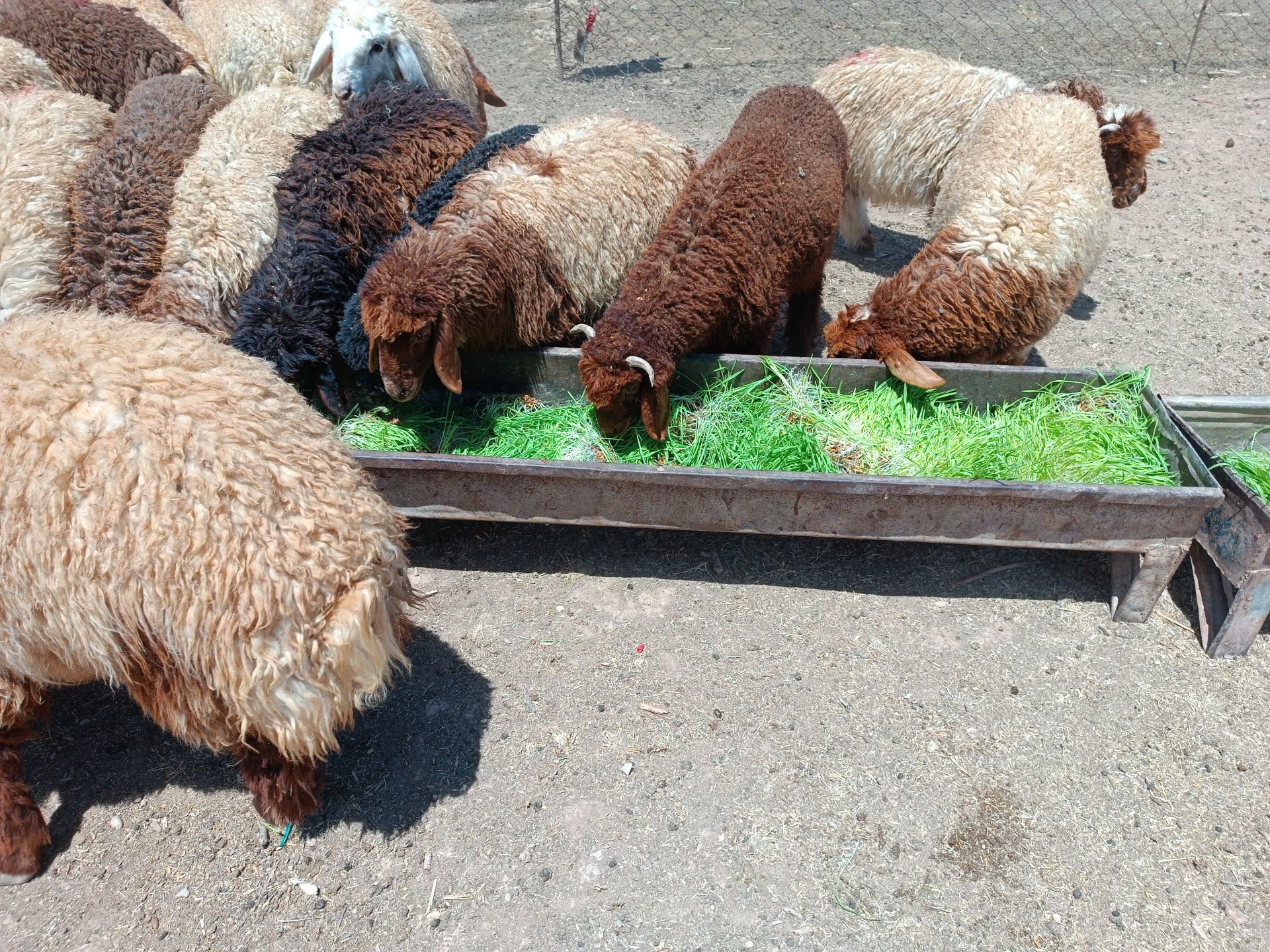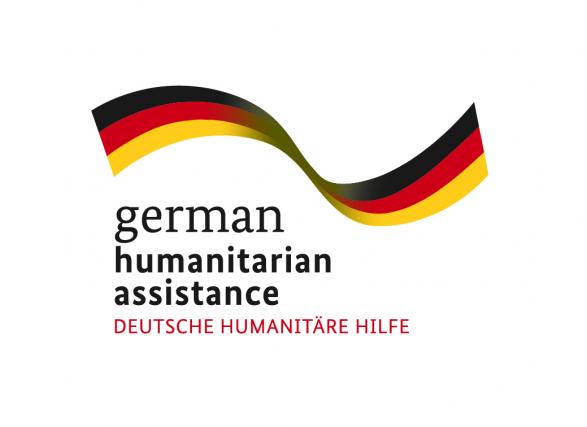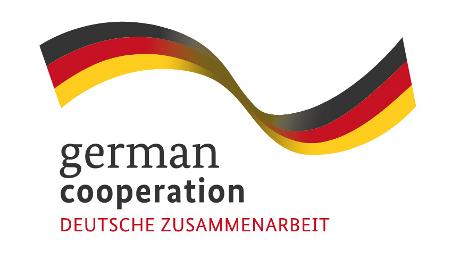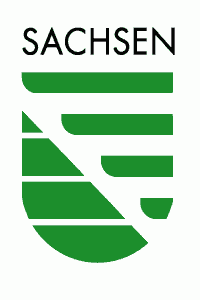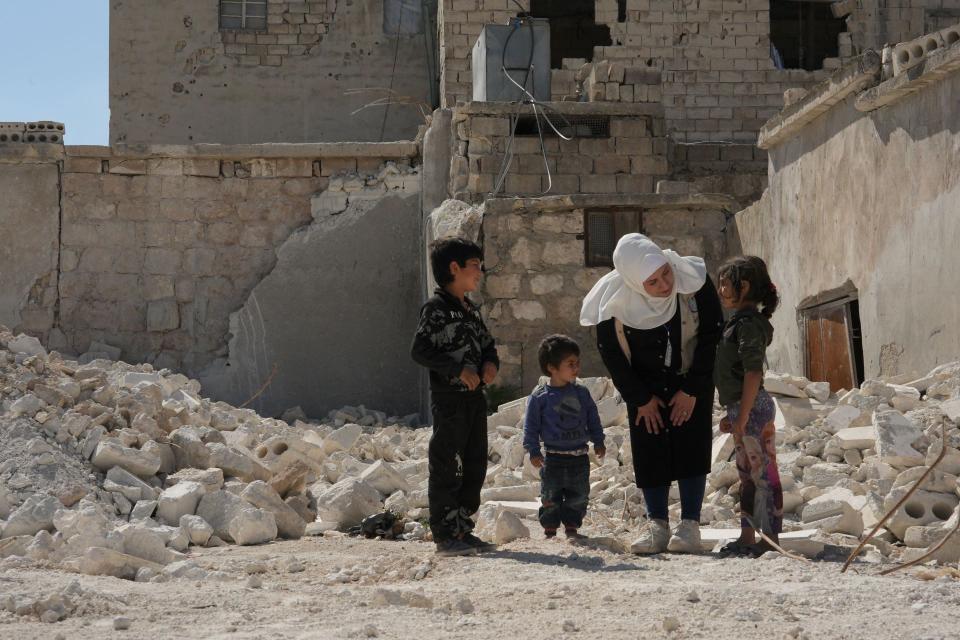
It is now 13 years since the start of the civil war in Syria. During this time, the situation of the people living in the permanent crisis area has remained largely unseen. With the earthquake in February 2023, the country briefly became the focus of media coverage, but even this attention has long since faded. What remains are people who have lost everything as a result of the disaster and the war. Many of them live in unofficial tent settlements without any infrastructure – in the most unfavourable conditions and without any hope of a better future.
Surviving in areas of Syria devastated by war and earthquakes
In the tent cities and communities hosting internally displaced people, there is a permanent shortage of essential goods – and what there is to buy is unaffordable for most people. Because the economy is in ruins due to the ongoing conflict and many industrial companies have ceased production since the earthquake, there are hardly any income opportunities. According to the United Nations, 12 million people, more than half of the Syrian population, suffer from food shortages and 2.9 million are acutely threatened by hunger. The distribution of food, water and hygiene products is essential for the survival of the families in the tent shelters and a great financial relief.
arche noVa has been active in Syria since 2012 and has distributed around 250,000 food parcels over the past 10 years. In cooperation with our partner organizations, we put together parcels containing the most varied and nutritious food possible. In addition, we distribute bread parcels to families (approx. 71,000 loaves of 1kg each per month) and support the establishment or reopening of small traditional bread bakeries in the settlements. So far, 8 bakeries have been able to start operations to supply people in the region with bread.
An additional electronic voucher system also enables people to shop in local shops – and thus at least a minimum degree of self-determination.
Bread is the most important thing in our household. Before I received support, I had great difficulty getting enough bread, mainly because of the size of my family, the limited work opportunities and also because of the earthquake that destroyed so much. The free bread is of very good quality and a great help to us.
Ahmed H. lived with his family near Aleppo until 2019. Because they had to flee the war, they settled in Jindires. During the earthquake, the walls of the house they were living in collapsed on top of them. Since then, they have been living in a camp for internally displaced people.
Against a lack of prospects: school education for children in northern Syria
A childhood surrounded by fear, loss and destruction leaves deep scars. The experiences that children have to endure in the ongoing crisis in northern Syria have left many of them severely traumatized. There is no everyday life as we know it for them. More than half of the children in Syria do not have the opportunity to go to school. Firstly, because they grow up far too early and have to work to ensure their family's survival. Secondly, because the war and the earthquake have destroyed the majority of schools.
With our education project, we are giving affected children from the Idlib and ar-Raqqa region a piece of normality back. They are given the opportunity to learn in a protected environment and process traumatic experiences. Their individual level of knowledge is taken into account, as is their mental health. The lessons are organized by specially trained learning guides who are sensitized to the children's special needs, provide them with psychosocial support and actively seek dialogue with their parents.
So far, around 16,000 children have taken part in the programme. In north-west Syria, which was hit by the earthquake, 85% of the children were able to attend a regular school afterwards.
A secure income – for a self-determined life
In northern Syria, the economy and infrastructure have been largely destroyed by the war and the earthquake – a circumstance that affects all areas of life. Farmers are particularly struggling with the situation, as they depend on access to water for their livelihoods. Because most irrigation canals are unusable and droughts are becoming increasingly frequent in Syria, their harvests are in constant danger – and with them the supply of vital food for the population. In addition to the distribution of drinking water as an acute measure, long-term and holistic solutions are therefore also needed to permanently improve people's food and income situation.
We are creating the basis for this in a multi-sectoral project. In the districts of ar-Raqqa and al-Hasakah, 45 kilometres of irrigation channels have been rehabilitated in cooperation with internally displaced persons and the host communities. We are also working closely with farmers to strengthen their livelihoods. With climate-adapted seeds, seedlings, fertilisers and small tools, they receive the basis for sustainable agriculture. Training courses on crop diversification also provide important information for more resilient cultivation of arable land. This support enables them to increase their yields in the long term, which not only secures their own livelihoods, but also improves the availability of food in the region.
New prospects are also urgently needed in other areas of the economy. Many young people living in Syria had no chance of an education during their childhood and have thus become unemployed.In the worst cases, they join militant groups in order to find a source of money. By setting up five vocational training centres in ar-Raqqa and al-Hasakah, we are offering young adults an alternative. At the centres, they can complete training in economically relevant sectors such as electrical installation, tailoring or solar and air conditioning technology. Those who want to set up their own business are given support in drawing up a sound business plan and setting up a company.
Donate for this project
Project Overview
- Securing the basic living conditions of people affected by the civil war and the 2023 earthquake
- Educational programmes for children and young people as well as psychosocial support
- Improving food security
- Income generation, particularly in agriculture and for young people
- Internally displaced persons and returnees as well as people from host communities in northern Syria
- Distribution of food parcels, bread parcels, hygiene kits, blankets, (winter) clothing and seeds for kitchen gardens
- Creating access to safe drinking water by rehabilitating the WASH infrastructure in consultation with local authorities
- Drinking water supply with tanker lorries to unofficial settlements/emergency shelters, distribution of water tanks
- Construction of toilets
- Sewage disposal and waste management in unofficial settlements/emergency shelters
- Strengthening agriculture by rehabilitating irrigation infrastructure and training on alternative cultivation methods for greater resilience
- Establishment of small bakeries in informal settlements
- Provision of seeds, livestock, fertiliser and small tools
- Support in finding and renting farmland
- Rehabilitation of water networks and training in their management
- Cash-for-work measures for the expansion of irrigation channels
- Establishment of vocational training centres for economically relevant areas (e.g. cosmetics, sewing, solar panel production, electrical installation, air conditioning technology)
- Business workshops and start-up support
- Educational offers for 7-15 year old children in temporary learning centres including equipment with necessary materials
- Renting and equipping classrooms
- Training and employment of learning guides
- Psychosocial support for children and counselling services for parents
- BONYAN
- Takaful Al Sham
- German Federal Foreign Office
- Federal Ministry for Economic Cooperation and Development
- Aktion Deutschland Hilft
- State Chancellery of Saxony
- Knorr Bremse Global Care e.V.
- Private Donors

